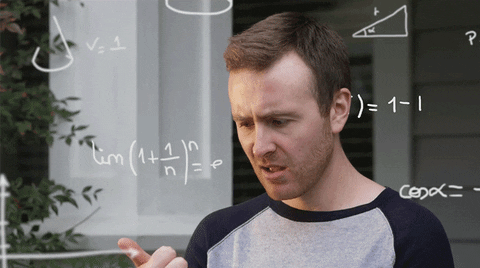Better by a country mile
Plus, does math buy happiness?
"Do what you can, with what you've got, where you are." - William Irvine
City slickers. Over the past decade, researchers have found that in developed countries, people who live in rural areas tend to be happier than residents of cities. That’s despite the long-standing migration trend of more and more people moving to cities. This is what’s sometimes called the rural happiness “paradox.” So what is it about rural life that seems to give it the happiness edge over cities? A new paper out of Denmark found two potential answers: 1) closer-knit social networks among rural residents; and 2) greater access to nature. Even if you don’t have a desire to leave your urban digs behind, it couldn’t hurt to get out there in the wilderness with your friends, right?
1+1=3. Congratulations, nerds. We have a reason to celebrate. A study in PLOS One finds that people who are better at math tend to have higher incomes. Survey respondents took an eight-question math test. The results were stunning. “For every one additional right answer on the eight-question math test, people reported an average of $4,062 more in annual income,” the researchers wrote. The data also showed that those better at math are more satisfied with their lives. Of course, the researchers are quick to caution against any kind of causal relationship, but math skills could be a factor in how we think about our life circumstances. For example, according to the paper, the better an individual was at math, the more their income was important to them. Consider this study fodder for the next argument with your kids about why they have to do their math homework.
We all have times when we feel like a fraud. Psychologist Kevin Cokley studies the corrosive effects of self-doubt, and how we can turn that negative voice in our heads into an ally. Listen to learn more.
ON THE HIDDEN BRAIN PODCAST
Jan 24: Life is filled with hardships and tragedies, and for thousands of years, philosophers have come up with strategies to help us cope. We talk with philosopher William Irvine about ancient ideas — backed by modern psychology — that can help us manage disappointment and misfortune.
Jan 31: We kick off a new series about how we understand — or fail to understand — the minds of other people. Neuroscientist Liane Young says our capacity to decode the thoughts of others involves an extraordinary feat of cognition.
ON THE MY UNSUNG HERO PODCAST
Jan 27: One day, Nicole George O'Brien had a seizure while driving to work. When she woke up in the hospital, she learned about an incredible act of courage by another driver on the road.
Don’t forget to send us the story of your unsung hero! Record a voice memo on your phone and email it to myunsunghero@hiddenbrain.org.
MIND GAMES
Here is one of the questions from the PLOS One study above:
Jerry received both the 15th highest and the 15th lowest mark in the class. How many students are in the class?
LAST WEEK’S PUZZLE
A man fell off a 20-foot ladder but did not get hurt. Why not?
Answer: He fell off the bottom step.
FROM THE TWITTERATI…
A MOMENT OF JOY
The many videos of this Sikh-Canadian man dancing in the Yukon bring us winter joy.
Have an idea for Hidden Brain? A story you want to share with us? Send an email to ideas@hiddenbrain.org. And if you’d like to support our work, you can do so here. Listen to us on Spotify, Apple, Amazon Music or your favorite podcast platform.





